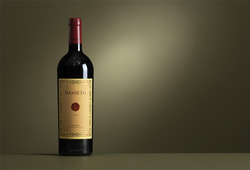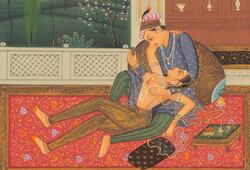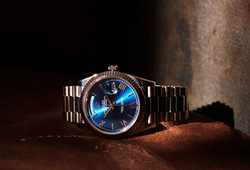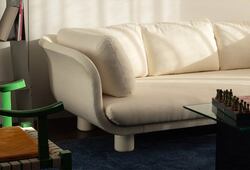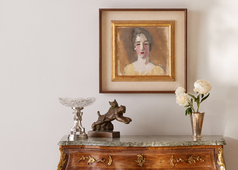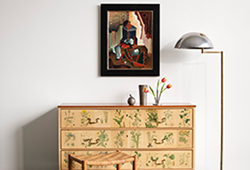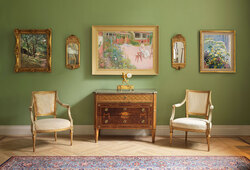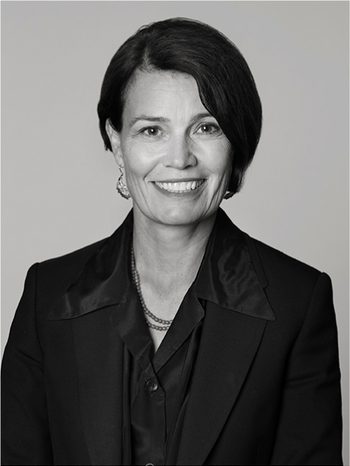Carl Larsson
"Vårflod/Översvämning"
Signed CL and dated 1902. Watercolour 96 x 63 cm.
Import VAT
Import VAT (12%) will be charged on the hammer price on this lot. For further details please contact customer service +46 8-614 08 00.
Provenance
Erik Wettergren Collection. He was museum director at Nationalmuseum 1942 - 1950.
Bukowski Auktioner AB, auction 417, "Höstauktionen", October 27 - 30, 1981, 307 cat. no. 113.
Exhibitions
Helsingborg, 1903, cat. no 345. Exhibited under the titel "Översvämning".
Liljevalchs konsthall, Stockholm "Minnesutställning - Carl Larsson", 6 March - 5 April, 1920, cat. no 177.
Literature
Ulwa Neergaard, "Carl Larsson, signerat med pensel och penna", 1999, illustrated p. 290 and listed in the catalogue supplement under the year 1902 p. 87, cat. no 1005.
More information
In Sundborn, Dalarna, the river flooded every year in spring. In the current painting "Vårflod/Översvämning" from 1902, Carl Larsson has captured the phenomenon and let it frame this tender family portrait. While his wife Karin sits on a chair with Esbjörn on her lap, his daughters run around exploring the flood. The water has created a temporary island where the family can enjoy the warmth of the spring sun.
Family and nature are two recurring themes in Carl Larsson's work and in "Vårflod/Översvämning" we see him masterfully exploring both. Carl Larsson began his family portraits in earnest in 1889 when he moved his family into the cottage Lilla Hyttnäs in Sundborn outside Falun. Over the next ten years, the family would live in both Stockholm and Sundborn. In Stockholm, Carl Larsson worked on large commissioned works such as the National Museum's murals, while in Sundborn he devoted himself to depicting his immediate surroundings and the people around him.
Carl Larsson found nature as a motif much earlier in his career, during his early years in France. Between 1882 and 1885, he lived in the village of Grez-sur-Loing with other Swedish and Scandinavian artists and together they explored the new landscape painting that had emerged in France in the second half of the 19th century. On his return to Sweden, he wrote that he had now 'given a big hand to nature [...] The brooding, brown herd will now be the object of my painting'.
"Vårflod/Översvämning" is a declaration of love for both family and nature. While depicting Karin's love for Esbjörn and her daughters' vital curiosity, he also captures the rich brown vegetation of spring with its stately birches and rippling water.
Artist
Carl Larsson is considered one of the greatest Swedish artists of all time. He was born in Gamla Stan in Stockholm and studied at the Royal Academy of Arts in the years 1866-76. After his studies in Stockholm, he traveled to France and settled in Grèz-sur-Loing. There he mainly painted garden motifs. In France, he met his future wife Karin Bergöö, who was also an artist and came to mean a lot for his artistry. Already during his student years, he made a living as a photo retoucher and cartoonist in the press. It was also during his studies that Larsson got to know Anders Zorn and Bruno Liljefors, together the three are usually called the ABC artists. At the end of the 1880s, Carl and Karin were given "Lilla Hyttnäs" in Sundborn outside Falun by Karin's father, and this is where Larsson's most famous watercolors depicting his family were created. The motifs often depict sunny landscapes with children, crayfish fishing, meals in the green and interior scenes. Larsson is represented, among other, in the National Museum, where "Gustav Vasas intåg i Stockholm" and "Midvinterblot" fills the stairwell. Represented mainly at the National Museum in Stockholm and at the Gothenburg Art Museum.
Read more




